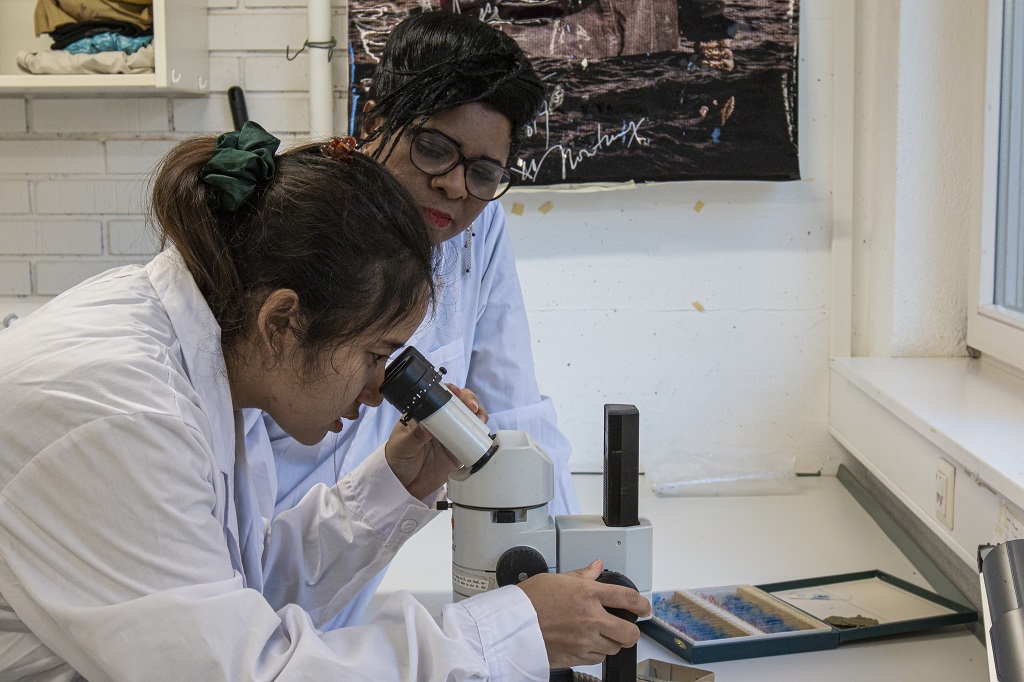“I was and still am motivated by discoveries and surprises that come with science”
To mark the forthcoming UN International Day of Women and Girls in Science (11 February 2019), we speak to some of CABI’s women working in science. In this blog Lucy Karanja, a Content Manager, reveals the motivation and inspiration behind her career in science communications and says ‘women are all round scientists naturally’. What motivated…
Can a ‘diet’ of digital data really help feed the world?
Last week (29 January 2019) CABI was awarded a $1.49 million grant from the Gates Foundation to work with them to help increase food security in India and Ethiopia through better access to data on soil health, agronomy and fertilizers. In this blog Communications Manager Wayne Coles looks at whether or not the use of…
A planetary health diet: kind to your body, animals and the planet
By Jennifer Cole, Royal Holloway, University of London It has long been clear that certain foods and dietary choices are not good for human health, but there is now increasing evidence that they can also be bad for the health of the planet. The recently published Food in the Anthropocene: EAT-Lancet Commission on healthy diets…
What’s it like doing a PhD with CABI?
In this Q&A article we hear from three PhD students who have collectively spent over 11 years studying at the CABI Switzerland centre in Delémont working with scientists there to improve the monitoring and management of invasive species in Europe and Africa. Find out from Judith Stahl, Benno Augustinus and Theo Linders about what they…
Is parthenium weed allergy problem worse than that of annual ragweed?
By Asad Shabbir Parthenium weed and annual ragweed are closely related members of the Asteraceae, known for their high allergenicity. The detrimental effects on human health of the more temperate annual ragweed are very well known. However, those of the more tropical parthenium weed are less well known and in fact much more severe, affecting…
Tuning into radio to dispel myths
By Amzath Fassassi – SciDev.Net’s regional coordinator for sub-Saharan Africa French, and the driving force behind Science et Développement. In Africa, many communities are still unaware of the key principles of science, whether they relate to diseases or natural phenomena. Until the beginning of the 1980s, in the slums of my native Benin, I remember that when lightning, hitherto considered…
Giving garlic mustard the biocontrol treatment
In eastern North America a species of weed has become an aggressive invader. Garlic mustard (Alliaria petiolata) is one of the most rapidly increasing woodland invasive plant species, spreading across northeastern and midwestern USA and southeastern Canada at a rate of nearly 2,500 square miles per year. The plant was most likely introduced to North…
The time is ripe for climate adaptation in agriculture
By Janny Vos, Director of Strategic Partnerships at CABI I recently attended the launch of the Global Commission on Adaptation (GCA) in The Hague where the words of the CEO of the World Bank – Kristalina Georgieva – resonated strongly with my work as part of an organisation that aims to improve people’s lives worldwide…
On International Mountain Day, let’s look at mountain tourism
Today, 11 December, is International Mountain Day. Almost one billion people live in mountain areas, and over half the human population depends on mountains for water, food and clean energy. And mountains are also important for tourism, attracting visitors for their scenery, wildlife, healthy air, winter sports and summer activities such as hiking, climbing and…




